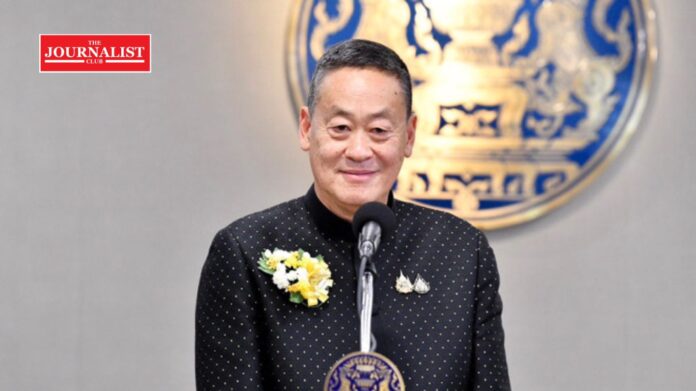

The delay may cause more collapses among Thai small and medium entrepreneurs.
The Joint Standing Committee on Commerce, Industry and Banking (JSCCIB) said on Wednesday (August 7) that the influx of Chinese industrial products into Southeast Asia is dealing blow to Thailand’s trade, reducing its market share in the region and leading to a trade deficit and leading to a trade deficit with China nearly US$ 20 billion.
In the first half this year, imports of Chinese products increased by 7.12% year-on-year, with a value of US$37.5 billion, leading to a trade deficit of US$ 19.9 billion, a year-on-year(YoY) increase of 15.6%.
In Southeast Asia, the market share of Thai electrical appliances fell to 11.5% in the first quarter this year, down from 12.7% YoY, while the market share of Thai-made cars fell to 18.7% for the period, dipping from 20.9% YoY.
Thai MPI in the first half this year shrank by 1.8%
JSCCIB also reported Thai Manufacturing Production Index (MPI) in the first half this year shrank by 1.8%. The entry of Chinese online retailer Temu into Thailand is expected to worsen the situation.
Three organisations of private sector called the government to impose more tariffs on some imported products.
Paryong Srivanich, chairman of Thai Bankers Association who chaired the JSCCIB meeting on Wednesday (7) said if the government has no new measure to better protect Thailand against Chinese products, more companies are likely to shut down.
The situation affected 23 industries in Thailand, which face even more pressure following the entry of Temu, which directly sells low-cost products from factories to customers.
Local SMEs are most exposed to the negative impact. During the first half of this year, some 667 factories shutters, a YoY increase of 86.3%, said Kriengkrai Thiennukul, chairman of the Federation of Thai Industries(FTI).
“The average is 111 factories closing per month”, he said.
Indonesian government has already imposed measures to protect domestic industries.
He said Indonesia has already imposed measures to combat for Chinese goods.
In June, Indonesian government imposed 200% of tariffs for some Chinese goods while Malaysian government recently announced to impose anti-dumping measure next year to protect for domestic industries from unfair-trade
The FTI chairman said based on the rules of the Asean-China free trade agreement, the government must consider applying tariffs to some products to better protect local manufacturers.
We are worried that the government’s ongoing efforts to slow the import of products from China will not be enough to protect Thai entrepreneurs.
The initiative aims to protect local businesses
However, four ministries, including Commerce, Industry, Public Health and Digital Economy and Society, will work together to tackle the influx of ultra-cheap and often poor quality products from China. The aim is to protect local businesses and consumers, the government said.
After attending the cabinet meeting on last Tuesday, Prime Minister Srettha Thavisinsaid he had tasked the commerce ministry with becoming a central agency in handling the problem of Chinese products flooding Thai markets and severely affecting the operations of local small and medium enterprises (SMEs). The ministry is expected to report the progress of its operations to the cabinet soon, he added.

Deputy prime minister and Commerce Minister Phumtham Wechayachai, said he will soon hold a meeting with the executives of the Industry, Public Health, and Digital Economy and Society ministries to discuss measures for this problem.
He said the measures would focus on ensuring that all imported products meet relevant industrial and health standards by boosting screening efforts at customs checkpoints as well as conducting random tests at markets.
Meanwhile, relevant agencies will also look into the possibility of amending the laws and regulations to prevent substandard products from entering the Thai market. This amendment will be done in a manner that does not violate the World Trade Organisation’s agreements, he added.
DES: closely monitoring the new Chinese platform Temu
Digital Economy and Society (DES) Minister Prasert Chantararuangthong said his ministry has been closely monitoring the new Chinese e-commerce platform Temu since it registered to conduct business in Thailand last month.
Temu’s entry into the Thai e-commerce market has sparked concerns among Thai entrepreneurs about the unchecked influx of ultra-cheap and often substandard goods from China, which can be ordered online directly without going through retailers.
Prasert said the DES Ministry will continue enforcing rules on e-commerce platforms related to consumer protection, such as warranty claims, product returns and false advertising.
Related News : The government may need to revise Thailand’s electrical vehicle policy










